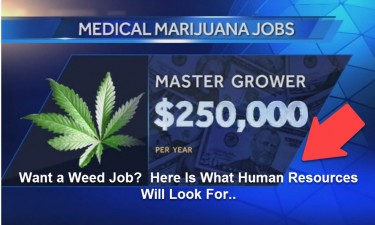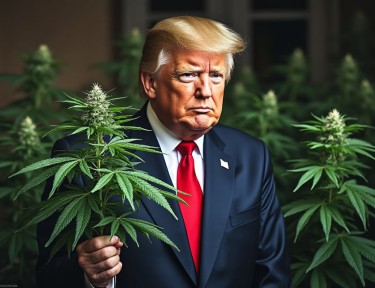Cannabis News
Antidepressants Numb Your Emotions Says New Study, Time to Switch to Cannabis?
Published
2 years agoon
By
admin

Emotional blunting, also referred to as numbness, is common among people who medicate with antidepressants.
When this occurs, one can neither feel happy nor sad. You simply feel numb, unable to cry or laugh when the situation calls for it and you may even feel less empathy for others. It can also significantly decrease your motivation as well as your enjoyment when you do things that used to bring you joy. That is the double-edged sword that comes with taking antidepressants, on top of all the side effects that each medicine can already bring about.
A new study analyzed the effects of Lexapro, a selective serotonin reuptake inhibitor. Lexapro is a common antidepressant, acting on the serotonin levels which we know as reuptake sites. It inhibits serotonin recycling in these parts of the brain which allows us to retain more serotonin so that symptoms of depression are reduced. For most people, it takes medicating with Lexapro and other SSRI’s for around 4 weeks for its full effects to be felt.
However, is it worth the emotional numbing that comes with it?
A report finds that around 40-60% of the population who consume SSRI’s experience emotional blunting. They also find that things are no longer as pleasurable, though it’s not clear if this is an effect of depression or the drug. One of the latest studies on the topic, which was published in the Neuropsychopharmacology journal, was conducted by researchers at the University of Cambridge, led by Prof. Barbara Sahakian. She discloses to The Guardian: “In a way, this may be in part how they work. They take away some of the emotional pain that people who experience depression feel, but unfortunately it seems that they also take away some of the enjoyment,” she says about emotional blunting.
For the study, 66 volunteers were tasked to take either escitalopram (generic name of Lexapro), or a placebo, for a period of 21 days. After that, they were asked to do a series of cognitive tests which measured their memory and attention as well as other functions. According to Sahakian, escitalopram didn’t make a difference in the test results. “The drug isn’t doing anything negative to cognition – from that point of view it’s very good,” she says.
On the other hand, the study participants who were taking SSRIs were also found to be less responsive when exposed to reinforcement learning, since they were asked to respond to positive or negative stimulus. They were shown two screens, one of which would give a reward 4 out of 5 times while the other screen would only give a reward once in 5 times. They eventually learned to choose the positive reinforcement screen but the probabilities were changed up so the participants didn’t know what to expect with the new rulings.
In addition, the volunteers who took SSRIs reported that they experienced more difficulties reaching orgasm during intercourse. This is a well-known side effect of SSRIs.
According to experts, the emotional blunting that SSRI medications causes is also related to dose, as well as its effects on the prefrontal cortex and frontal lobes. Patients have the option of lowering SSRI doses or changing their medications as needed.
Is Cannabis A Better Substitute For Depression?
Cannabis has two primary cannabinoids: psychoactive THC (tetrahydrocannabinol) and relaxing CBD (cannabidiol). The human body has endocannabinoid receptors found all throughout, especially in the brain, which these cannabinoids bind to and help treat a multitude of mental health disorders.
Countless people have had success medicating with marijuana for depression as well as anxiety.
In a 2022 study of more than 7,000 adults with diagnosed with depression and anxiety, researchers found that marijuana use was associated with improvements in symptoms of depression and anxiety. Even better, the effects of cannabis were long term: the improvements were observed 12 and 18 months after treatment.
“To our knowledge, this study is the largest completed to date examining the impact of medical cannabis use on anxiety and depression outcomes utilizing longitudinal data and validated questionnaires,” they wrote. “It provides evidence on the effectiveness of medical cannabis as treatment for anxiety and depression that otherwise is not currently available, demonstrating that patients who seek treatment with medical cannabis for anxiety and depression can experience clinically significant improvements,” they wrote.
“This study offers reasonable justification for the completion of large clinical trials to further the understanding of medical cannabis as a treatment for anxiety and depression,” concluded the authors.
Meanwhile, another study found that long-term consumption of CBD cannabis also helps patients struggling with depression, anxiety, and pain. Canadian researchers analyzed the impact of CBD products on 279 subjects over the course of 6 months. Patients who had severe symptoms appeared to benefit the most.
“This study on CBD-rich products demonstrates the potential of RWE (real-world evidence) for the advancement of medical cannabis research and practice guidelines, especially in a world where CBD use is exponentially increasing but scientific data are limited,” they wrote.
“It revealed that CBD-rich treatments have a beneficial impact on patients with self-reported moderate or severe symptoms of pain, anxiety, or depression and overall wellbeing but not in patients with mild symptoms,” write the authors.
Conclusion
There is definitely promising evidence that marijuana can help with depression. It may require some trial and error with various THC and CBD products until you find exactly what works for you. Nonetheless, it’s a much safer alternative that won’t numb your emotions yet it works so well for many people. There are no side effects to worry about, but if you are already taking existing medications, do talk to your healthcare provider about integrating cannabis into your wellness routine.
ARE YOUR ANTIDEPRESSANTS KILLING YOU? READ ON…
You may like
Cannabis News
Is There Any Green Left in the Green Rush?
Published
15 hours agoon
January 29, 2025By
admin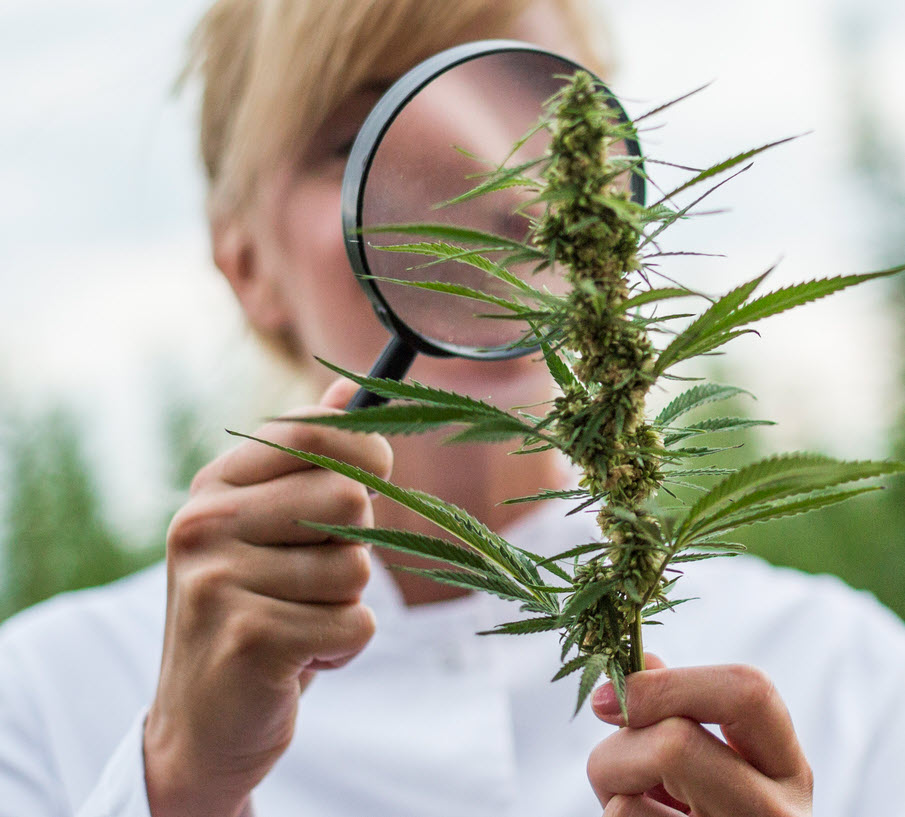
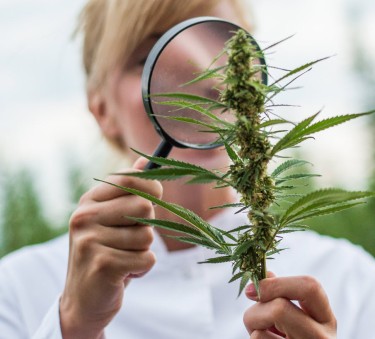
The cannabis industry has undergone a remarkable transformation over the past decade, evolving from a largely underground market to a legitimate and booming sector. As more states and countries legalize cannabis for medical and recreational use, the demand for skilled professionals has surged. This growth has led to the emergence of various high-paying cannabis job opportunities that cater to a wide range of expertise. In this article, we will explore some of the highest-paying jobs in the cannabis industry, their roles, responsibilities, and the skills required to excel in these positions.
The Cannabis Industry Landscape
Before diving into specific job roles, it’s essential to understand the current landscape of the cannabis industry. As of 2023, the global cannabis market is projected to reach over $70 billion by 2028, driven by increasing legalization, changing consumer attitudes, and growing acceptance of cannabis for both medicinal and recreational purposes. This rapid growth has created a demand and jobs for professionals across various sectors, including cultivation, retail, manufacturing, marketing, and compliance.
Factors Driving Job Growth
1. Legalization: As more regions legalize cannabis, new businesses are emerging, creating job opportunities across the supply chain.
2. Consumer Demand: The growing acceptance of cannabis products has led to increased consumer demand for quality products and services.
3. Innovation: The industry is witnessing continuous innovation in product development and technology, necessitating skilled professionals to drive these advancements.
4. Regulatory Compliance: Navigating complex regulations requires experts who can ensure compliance with local and federal laws.
With this backdrop in mind, let’s delve into some of the highest-paying jobs within the cannabis industry.
1. Chief Financial Officer (CFO)
The Chief Financial Officer (CFO) plays a critical role in any organization, and this is especially true in the cannabis industry. As companies navigate a complex financial landscape marked by fluctuating regulations and banking challenges, a skilled CFO is essential for guiding financial strategy.
Responsibilities
-
Financial Planning: Developing long-term financial strategies that align with company goals.
-
Budget Management: Overseeing budgets and ensuring efficient allocation of resources.
-
Regulatory Compliance: Ensuring adherence to financial regulations specific to the cannabis industry.
-
Investor Relations: Managing relationships with investors and stakeholders.
Salary Range
CFOs in the cannabis industry can expect to earn between $125,000 and $250,000 annually, depending on the size of the company and its location.
Skills Required
-
Strong analytical skills
-
Experience in financial management
-
Knowledge of cannabis regulations
-
Excellent communication skills
2. Chief Operations Officer (COO)
The Chief Operations Officer (COO) is responsible for overseeing daily operations within a cannabis company. This role is crucial for ensuring that all aspects of the business run smoothly and efficiently.
Responsibilities
-
Operational Strategy: Developing strategies to improve operational efficiency.
-
Team Management: Leading various departments such as cultivation, production, and sales.
-
Process Optimization: Implementing best practices for production and distribution.
-
Quality Control: Ensuring that products meet regulatory standards and quality expectations.
Salary Range
COOs typically earn between $125,000 and $200,000 annually.
Skills Required
-
Strong leadership abilities
-
Experience in operations management
-
Knowledge of supply chain logistics
-
Problem-solving skills
3. Vice President of Cultivation
The Vice President of Cultivation oversees all aspects of growing cannabis plants from seed to harvest. This role requires extensive knowledge of horticulture as well as business acumen.
Responsibilities
-
Cultivation Management: Directing cultivation operations to maximize yield and quality.
-
Research & Development: Staying updated on new cultivation techniques and technologies.
-
Staff Training: Training staff on best practices for plant care.
-
Compliance Oversight: Ensuring that cultivation practices adhere to state regulations.
Salary Range
This position typically commands a salary between $140,000 and $185,000 annually.
Skills Required
4. Cannabis Consultant
Cannabis consultants provide expert advice on various aspects of running a cannabis business. They often work with startups or established companies looking to optimize their operations or navigate regulatory challenges.
Responsibilities
-
Regulatory Guidance: Helping businesses understand local and federal regulations.
-
Business Strategy: Advising on market entry strategies or operational improvements.
-
Training Programs: Developing training programs for staff on compliance issues.
-
Market Analysis: Conducting research on market trends and consumer preferences.
Salary Range
Cannabis consultants can earn anywhere from $100,000 to over $250,000, depending on their expertise and client base.
Skills Required
5. Dispensary Manager
Dispensary managers oversee the daily operations of retail locations selling cannabis products. This role combines customer service with business management skills.
Responsibilities
-
Staff Management: Hiring, training, and supervising dispensary staff.
-
Inventory Control: Managing inventory levels to ensure product availability.
-
Customer Service: Ensuring high levels of customer satisfaction through excellent service.
-
Sales Strategy: Developing sales strategies to increase revenue.
Salary Range
Dispensary managers typically earn between $60,000 and $120,000, depending on location and experience.
Skills Required
-
Strong leadership qualities
-
Experience in retail management
-
Knowledge of cannabis products
-
Excellent interpersonal skills
6. Extraction Technician
Extraction technicians play a vital role in producing concentrated cannabis products such as oils and edibles. This position requires technical expertise in extraction methods.
Responsibilities
-
Extraction Processes: Performing extraction using various techniques (e.g., CO2 extraction).
-
Equipment Maintenance: Maintaining extraction equipment to ensure safety and efficiency.
-
Quality Assurance: Testing products for potency and purity.
-
Documentation: Keeping detailed records of extraction processes for compliance purposes.
Salary Range
Extraction technicians can earn between $50,000 and $90,000, depending on their level of experience.
Skills Required
-
Technical knowledge of extraction methods
-
Attention to detai Ability to work with laboratory equipment
-
Strong problem-solving skills
7. Marketing Manager
Marketing managers in the cannabis industry are responsible for developing marketing strategies that promote products while adhering to strict advertising regulations unique to this sector.
Responsibilities
-
Brand Development: Creating a strong brand identity that resonates with consumers.
-
Campaign Management: Planning and executing marketing campaigns across various channels.
-
Market Research: Analyzing market trends to identify opportunities for growth.
-
Social Media Management: Engaging with customers through social media platforms while complying with advertising regulations.
Salary Range
Marketing managers can expect salaries ranging from $70,000 to $150,000, depending on experience and company size.
Skills Required
-
Strong understanding of digital marketing
-
Creativity
-
Excellent communication skills
-
Ability to analyze market data
8. Compliance Officer
Compliance officers ensure that cannabis businesses adhere to all local, state, and federal regulations governing their operations. This role is crucial for avoiding legal issues that could jeopardize a business’s future.
Responsibilities
-
Regulatory Monitoring: Keeping up-to-date with changes in laws affecting the cannabis industry.
-
Policy Development: Creating internal policies that align with legal requirements.
-
Training Staff: Educating employees about compliance issues related to their roles.
-
Auditing Practices: Conducting regular audits to ensure adherence to regulations.
Salary Range
Compliance officers typically earn between $70,000 and $120,000, depending on experience level.
Skills Required
9. Product Development Scientist
Product development scientists are responsible for creating new cannabis products or improving existing ones. Their work involves research into formulations that meet consumer needs while adhering to safety standards.
Responsibilities
-
Researching new product formulations
-
Conducting stability testing
-
Collaborating with marketing teams
-
Ensuring compliance with health regulations
Salary Range
Product development scientists can earn between $80,000 and $130,000, depending on their expertise level.
Skills Required
-
Strong background in chemistry or biology
-
Creativity
-
Problem-solving abilities
-
Knowledge of regulatory standards
Check for open jobs in the cannabis industry near you on our job board by clicking here!
Conclusion
The cannabis industry presents an array of high-paying job opportunities across various sectors—from finance and operations management to marketing and compliance. As legalization continues to spread globally, skilled professionals will be essential for navigating this rapidly evolving landscape. Whether you’re an experienced professional looking for a career change or someone entering the job market for the first time, there are numerous pathways available within this exciting field. By acquiring relevant skills and knowledge about the industry’s unique challenges and opportunities, you can position yourself for success in one of today’s most dynamic job markets.
HIGHEST PAYING JOBS IN WEED, READ ON…
Cannabis News
Not Just Alcohol Sales Dropping, Anxiety Medication Prescriptions Plummet in States with Legal Cannabis Programs
Published
2 days agoon
January 28, 2025By
admin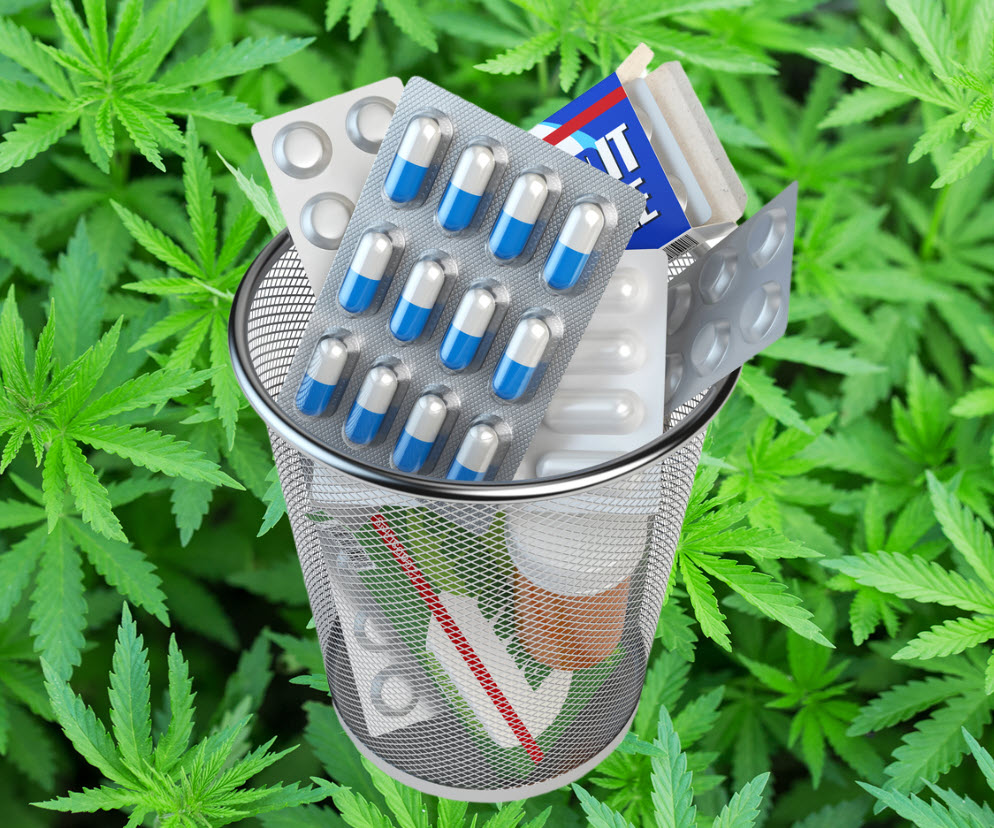
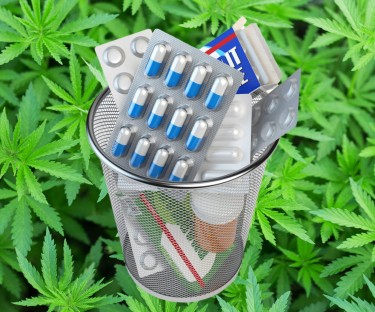
The legalization of marijuana has sparked a significant shift in the landscape of mental health treatment, particularly concerning anxiety disorders. Recent studies have indicated a notable decrease in prescriptions for anti-anxiety medications, especially benzodiazepines, in states where marijuana has been legalized. This phenomenon raises important questions about the implications for pharmaceutical companies that have long dominated the market for anxiety treatments. In this article, we will explore the connection between legal marijuana and the decline in anxiety medication prescriptions, delve into the broader implications for the pharmaceutical industry, and consider what this means for patients and healthcare providers.
Understanding Anxiety Disorders and Current Treatment Options
The Prevalence of Anxiety Disorders
Anxiety disorders are among the most common mental health issues affecting millions of individuals worldwide. According to the World Health Organization (WHO), anxiety disorders affect approximately 264 million people globally. These disorders encompass a range of conditions, including generalized anxiety disorder (GAD), social anxiety disorder, panic disorder, and specific phobias. Symptoms can vary widely but often include excessive worry, restlessness, fatigue, difficulty concentrating, and physical symptoms such as increased heart rate and sweating.
Traditional Treatments for Anxiety
Historically, treatment options for anxiety disorders have included psychotherapy and pharmacotherapy. Common pharmacological treatments include:
-
Benzodiazepines: Medications such as diazepam (Valium), lorazepam (Ativan), and alprazolam (Xanax) are frequently prescribed for short-term relief of acute anxiety symptoms. While effective, these medications carry risks of dependency and withdrawal symptoms.
-
Selective Serotonin Reuptake Inhibitors (SSRIs): Drugs like sertraline (Zoloft) and fluoxetine (Prozac) are often used as first-line treatments for chronic anxiety disorders. They work by increasing serotonin levels in the brain but can take several weeks to show effects.
-
Cognitive Behavioral Therapy (CBT): This form of psychotherapy is widely regarded as an effective treatment for anxiety disorders. CBT focuses on changing negative thought patterns and behaviors associated with anxiety.
Despite their effectiveness, many patients experience side effects from these medications or find them insufficient in managing their symptoms. As a result, there is growing interest in alternative treatments, including legal marijuana.
The Rise of Legal Marijuana
In recent years, various states in the U.S. have moved toward legalizing marijuana for both medical and recreational use. As of 2023, over 30 states have legalized medical marijuana, while several others have legalized it for recreational use. This trend reflects changing public attitudes toward cannabis and increasing recognition of its potential therapeutic benefits.
Medical Marijuana and Anxiety Relief
Cannabis contains numerous compounds known as cannabinoids, with tetrahydrocannabinol (THC) and cannabidiol (CBD) being the most studied. THC is responsible for the psychoactive effects associated with marijuana use, while CBD is non-psychoactive and has garnered attention for its potential therapeutic properties.
Research suggests that CBD may help alleviate anxiety symptoms without the side effects commonly associated with traditional anti-anxiety medications. A 2019 study published in The Permanente Journal found that CBD significantly reduced anxiety scores in a group of patients within a month of treatment.
The Connection Between Legal Marijuana and Reduced Anxiety Medication Prescriptions
A groundbreaking study published in JAMA Network Open examined prescription data from states that legalized marijuana. The researchers found that states with medical cannabis laws experienced a 12.4% reduction in benzodiazepine prescriptions, while those with recreational laws saw a 15.2% decrease. This data suggests that patients may be substituting cannabis for traditional anti-anxiety medications.
Patient Behavior and Preferences
Several factors may contribute to patients’ decisions to turn to legal marijuana instead of pharmaceuticals:
1. Perceived Safety: Many individuals view cannabis as a safer alternative to benzodiazepines due to the latter’s association with dependency and withdrawal issues.
2. Efficacy: Patients often report positive experiences with cannabis in managing their anxiety symptoms, leading them to prefer it over conventional medications.
3. Holistic Approach: Cannabis is often perceived as part of a more holistic approach to health that includes lifestyle changes, mindfulness practices, and alternative therapies.
4. Accessibility: In states where cannabis is legal, obtaining it may be easier than navigating the healthcare system to secure prescriptions for traditional medications.
Implications for Pharmaceutical Companies
The decline in benzodiazepine prescriptions linked to legal marijuana poses significant challenges for pharmaceutical companies that produce these medications. Here are some key implications:
Market Dynamics
As more patients seek cannabis as an alternative treatment for anxiety, pharmaceutical companies may face reduced demand for their products. This shift could lead to decreased revenue from anti-anxiety medications, prompting companies to reevaluate their market strategies.
Research and Development Focus
Pharmaceutical companies may need to adapt by investing in research related to cannabis-based therapies or developing new products that incorporate cannabinoids. Some companies are already exploring synthetic cannabinoids or formulations that combine traditional pharmaceuticals with cannabis extracts.
Regulatory Challenges
The evolving legal landscape surrounding cannabis presents regulatory challenges for pharmaceutical companies. As more states legalize marijuana, there may be increased scrutiny regarding its safety and efficacy compared to traditional medications.
Broader Implications for Mental Health Treatment
The rise of legal marijuana as a treatment option signals a potential shift in how mental health care is approached:
1. Integration of Cannabis into Treatment Plans: Healthcare providers may begin incorporating cannabis into treatment plans alongside traditional therapies. This integration could lead to more individualized care tailored to patients’ preferences.
2. Increased Focus on Patient-Centered Care:The growing acceptance of cannabis reflects a broader trend toward patient-centered care models that prioritize patient preferences and experiences in treatment decisions.
3. Need for Education: As patients increasingly seek information about cannabis as a treatment option, healthcare providers must be equipped with knowledge about its benefits and risks to guide informed decision-making.
Potential Risks and Considerations
While legal marijuana offers promising alternatives for managing anxiety, it is essential to consider potential risks:
1. Lack of Regulation:The cannabis industry is less regulated than pharmaceuticals, leading to concerns about product quality, dosing accuracy, and potential contaminants.
2. Individual Variability: Responses to cannabis can vary widely among individuals due to factors such as genetics, tolerance levels, and underlying health conditions.
3. Potential for Misuse: While many individuals use cannabis responsibly, there is potential for misuse or over-reliance on it as a coping mechanism.
Conclusion
The link between legal marijuana and decreased prescriptions for anti-anxiety medications marks a significant development in mental health treatment paradigms. As more patients turn to cannabis as an alternative therapy, pharmaceutical companies must adapt to this changing landscape by reevaluating their strategies and investing in research related to cannabinoid-based treatments. For patients grappling with anxiety disorders, this shift could herald a new era of treatment options that prioritize safety, efficacy, and individual preferences. However, it also necessitates ongoing dialogue among healthcare providers about the best approaches to integrate cannabis into mental health care while ensuring patient safety.As we move forward into this evolving landscape of mental health treatment options, it is crucial to remain vigilant about the implications of these changes—both positive and negative—for patients seeking relief from anxiety disorders and the broader healthcare system at large.
—
This article provides an extensive overview of how the legalization of marijuana is linked to changes in medication prescriptions for anxiety disorders while discussing its implications on pharmaceutical companies and mental health treatment paradigms overall.
CANNABIS REPLACES BENZOS? READ ON…
Cannabis News
An Important Lesson from the 2024 Elections
Published
4 days agoon
January 26, 2025By
admin

Retrospect: An Important Lesson to learn from the 2024 Elections
Well folks, here we are again. Donald Trump is back in the White House, and if his previous term taught us anything, we’re strapping in for one hell of a rollercoaster ride. I can already feel my inbox filling up with requests to write about the latest Trump cannabis controversy or whatever inflammatory tweet is setting the internet ablaze.
But I’ll be honest with you – I’m going to try my damnedest to avoid turning this platform into yet another Trump commentary channel. Lord knows we’ve got enough of those already. Between the mainstream media’s obsession with every presidential syllable and the circus surrounding Elon Musk and RFK Jr.’s alliance with Trump, we’re already drowning in political theater. I mean, just look at the current media frenzy over “Did Elon Nazi Salute?” after Trump’s inauguration speech. If that’s any indication, we’re in for four years of non-stop sensationalism.
Here’s the thing though – as someone who prides himself on staying above the partisan fray (and believe me, that’s getting harder by the day), I feel obligated to share some hard-earned wisdom about navigating the cannabis landscape during these politically charged times. The last four years under Biden’s administration taught us some valuable lessons about political promises and cannabis reform, and those insights are more relevant than ever as we enter this new chapter.
So grab your favorite strain, settle into your comfy spot, and let old Reginald share some perspective on what we’ve learned and how to keep our heads straight during what’s sure to be an… interesting four years ahead.
If there’s one thing I’ve learned from years of covering cannabis politics, it’s that weed polls better than politicians – and boy, do they know it. It might sound like I’m hitting the bong too hard, but the numbers don’t lie. Election after election, cannabis legalization consistently polls higher than any candidate running for office. With pseudo-legalization spreading across the country like wildfire, there are more cannabis supporters than ever before, making us quite the tempting voting bloc.
This reality wasn’t lost on the Democrats during their four-year stint. They dangled cannabis reform like a carrot on a stick, making grand promises about prioritizing legalization. Remember Kamala Harris, suddenly becoming cannabis’s biggest cheerleader? The same Kamala who oversaw countless marijuana prosecutions as California’s Attorney General was now preaching about social justice and legalization. The irony was thicker than smoke in a hotboxed Volkswagen.
For the first few years of the Biden administration, we got nothing but lip service. Then, as election season approached – wouldn’t you know it – suddenly cannabis reform became urgent. Pot pardons! Rescheduling! It was like watching a dealer who ghosted you for months suddenly sliding into your DMs with “you up?”
And some folks ate it up. I saw countless posts from well-meaning stoners declaring their undying loyalty to Biden-Harris based solely on these eleventh-hour cannabis promises. But let’s get real – those pardons didn’t free a single soul from prison, and the rescheduling circus? Well, that’s still stuck in bureaucratic limbo, likely to face years of litigation if it ever materializes.
Here’s the kicker though – despite all this pot pandering, Trump still won. Why? Because while cannabis reform is important, Americans were more concerned about putting food on their tables, feeling safe in their communities, and managing the immigration crisis. The Democrats were so busy virtue signaling about helping marginalized communities that they forgot about the broader population’s immediate concerns. That’s like focusing on growing exotic strains while your basic crops are dying – it might sound cool, but it won’t feed the masses.
The result? Not only did they lose the election, but they strung along millions of cannabis supporters for absolutely nothing. No legalization, no meaningful reform, just empty promises and disappointed voters. And therein lies our lesson, my friends. Politicians will always love pot pandering because they know we’re passionate about legalization. But when their promises go up in smoke, we’re the ones left holding an empty bag.
Here’s a draft in Reginald Reefer’s voice:
Let me tell you why I stay away from political parties like they’re contaminated bathwater. It’s not because I don’t care about society or our collective rights – quite the opposite. It’s because these parties are like ill-fitting suits; they might look good on the rack, but once you try them on, nothing quite sits right.
Take me, for example. On some issues, I’m as “Republican” as they come. I believe in keeping government small (because let’s face it, they tend to mess up everything they touch), rewarding merit over handouts, cutting through red tape, and protecting individual liberties. You know, the whole “leave me alone to grow my plants in peace” mentality.
But flip the coin, and suddenly I’m singing from the Democratic hymnal. I believe in drug reform (obviously), holding big corporations accountable for their shenanigans, protecting Mother Earth, and letting people love whoever they damn well please. Some might say this makes me a libertarian, but I prefer to think of myself as an anarchist – not in the “chaos in the streets” sense, but in the “I don’t need a master telling me what to do” sense.
Now, if I were to play the political game (which I’m not, but let’s pretend), here’s how I’d approach it. During campaign season? Sure, I’d fight like hell to get my candidate in office. Wave the signs, spread the word, do the whole song and dance. But the moment they win? That’s when the real work begins.
See, this is where most people get it wrong. They treat their political party like a sports team, blindly cheering even when their players are dropping the ball. But that’s not how democracy should work. The minute your candidate takes office, you need to transform from their biggest cheerleader into their harshest critic.
Stop swooning over their tweets and start scrutinizing their actions. Forget what they promised on the campaign trail – what are they actually doing now? Are they following through, or are they just blowing smoke? If they’re not living up to their word, it’s time to make some noise. Call your representatives, flood their offices with emails, make your voice heard.
That’s the thing about political promises – they’re like rolling papers in the wind unless someone holds these politicians accountable. And who better to do that than the people who put them in office? Don’t let them get comfortable. Don’t let them forget who they work for.
So over these next four years, whether you’re a Trump supporter or just someone trying to navigate this political circus, remember: Your job isn’t to defend your candidate’s every move. Your job is to keep them honest, keep them working, and keep them afraid of disappointing their constituents. Because at the end of the day, politicians are like cannabis plants – they need constant attention and occasional pruning to produce anything worthwhile.
Let’s talk about the orange elephant in the room. Love him or hate him, Trump isn’t your typical politician – mainly because he isn’t one. He’s more like a chaos wizard who somehow got hold of the nuclear codes. But here’s the thing that makes covering Trump so interesting: unlike most politicians who make promises they never intend to keep, this guy actually follows through on some wild stuff.
Take his first few weeks back in office. While the media was having a meltdown about his latest tweet, Trump was busy declassifying JFK and MLK documents that have been gathering dust for decades. But the real head-turner? Pardoning Ross Ulbricht, aka the Dread Pirate Roberts. Here’s a guy who got two life sentences without parole for… what exactly? Creating a website? Sure, people sold drugs on the Silk Road, but by that logic, we should throw Mark Zuckerberg in prison every time someone sells weed through Facebook Messenger.
And he’s not done. RFK Jr. – the black sheep of the Kennedy family who’s been raising hell about pharmaceutical companies – is set to head Health and Human Services. Meanwhile, Trump’s already making good on his immigration promises faster than you can say “build the wall.” It’s clear this isn’t the same Trump from 2016. He’s got new allies, new strategies, and seemingly fewer fucks to give than ever before.
But here’s where things get murky, folks. While Trump’s making moves that have libertarians and anti-establishment types cheering, he’s also cozying up to some seriously sketchy characters. Take Larry Ellison, the Oracle overlord who’s got deeper CIA connections than my grow room has spider mites. For those who don’t know, Oracle started as a CIA project in 1977 with Ellison at the helm, though they’ll swear up and down it’s all ancient history. Yeah, and I’m just growing tomatoes in my basement.
What’s particularly concerning is all this talk about using AI to develop mRNA vaccines. I don’t know about you, but combining artificial intelligence, experimental vaccines, and a company with intelligence agency roots sounds like the plot of a dystopian novel I don’t want to live through.
So here we are, watching Trump do some genuinely positive things while simultaneously setting up what could be the infrastructure for a technocratic surveillance state. It’s like finding out your dealer is giving you great prices but also installing cameras in your house. Sure, the weed’s good, but at what cost?
This is why, my friends, we need to stay vigilant. Celebrate the wins when they come, but keep your eyes wide open and your bullshit detectors finely tuned. Because in Trump’s America 2.0, the only thing we can be certain of is uncertainty itself.
TRUMP ON MARIJUANA LEGALIZATION, READ ON…

How AI Impacts The Cannabis Industry

Is There Any Green Left in the Green Rush?

The Best Marijuana Strains For Your Chinese Zodiac Sign

Cannabis Can Get Rid Of The Doomsday Clock Blues

Will Snoop Dogg Use His New Influence To Help Cannabis

Not Just Alcohol Sales Dropping, Anxiety Medication Prescriptions Plummet in States with Legal Cannabis Programs

Why 2025 could be a banner year for cannabis investors

Alaska Law Enforcement significantly increases illegal drug seizures in 2024

Is Cannabis Now The #1 Sleep Aid

Will Representative Dina Titus Help Cannabis

Distressed Cannabis Business Takeaways – Canna Law Blog™

United States: Alex Malyshev And Melinda Fellner Discuss The Intersection Of Tax And Cannabis In New Video Series – Part VI: Licensing (Video)

What you Need to Know

Drug Testing for Marijuana – The Joint Blog

NCIA Write About Their Equity Scholarship Program

It has been a wild news week – here’s how CBD and weed can help you relax

Cannabis, alcohol firm SNDL loses CA$372.4 million in 2022

A new April 20 cannabis contest includes a $40,000 purse

Your Go-To Source for Cannabis Logos and Designs

UArizona launches online cannabis compliance online course
Trending
-

 Cannabis News2 years ago
Cannabis News2 years agoDistressed Cannabis Business Takeaways – Canna Law Blog™
-

 One-Hit Wonders2 years ago
One-Hit Wonders2 years agoUnited States: Alex Malyshev And Melinda Fellner Discuss The Intersection Of Tax And Cannabis In New Video Series – Part VI: Licensing (Video)
-

 Cannabis 1012 years ago
Cannabis 1012 years agoWhat you Need to Know
-

 drug testing1 year ago
drug testing1 year agoDrug Testing for Marijuana – The Joint Blog
-

 Education2 years ago
Education2 years agoNCIA Write About Their Equity Scholarship Program
-

 Cannabis2 years ago
Cannabis2 years agoIt has been a wild news week – here’s how CBD and weed can help you relax
-

 Marijuana Business Daily2 years ago
Marijuana Business Daily2 years agoCannabis, alcohol firm SNDL loses CA$372.4 million in 2022
-

 California2 years ago
California2 years agoA new April 20 cannabis contest includes a $40,000 purse





